Death Penalty
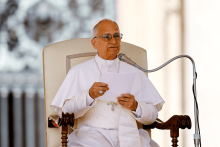
Pope Leo on Tuesday appeared to offer his strongest criticism yet of President Donald Trump’s hardline immigration policies, questioning whether they were in line with the Catholic Church’s pro-life teachings.
“Someone who says I am against abortion, but I am in agreement with the inhuman treatment of immigrants in the United States, I don’t know if that’s pro-life,” the pontiff told journalists outside his residence in Castel Gandolfo.

Faith leaders are speaking out against Arkansas’ efforts to expand its options for carrying out the death penalty, calling for the state to address the root causes of violence rather than doubling down on punishment.
“Some will say, if you really do the research, you’ll find a more humane way for us to kill each other. I say, if you really do the research, you’ll find the laws that won’t put us in that position to begin with,” said Rev. Paul Beedle of the Unitarian Universalist Church of Little Rock.
Beedle joined more than 40 faith leaders signing onto a letter urging Republican Gov. Sarah Huckabee Sanders to refrain from authorizing nitrogen gas as an execution method. Seven leaders gathered and spoke at the state’s capitol in Little Rock on Aug. 21, then delivered the letter to the governor’s office themselves.
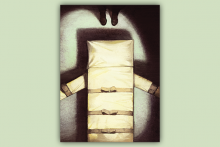
I HAD A friend. He died last summer. Actually, to say “He died,” is too passive. He was killed. He was killed as I held him, as those who loved him and those he had hurt watched. On June 26, 2024, the state of Texas executed Ramiro Gonzales for the rape and murder of Bridget Townsend. In 2001, Ramiro was 18 years old, suicidal, violent, and struggling against the chains of addiction; but 23 years later the state took the life of a 41-year-old man who was sober, faithful, and deeply considerate of everybody who surrounded him. He was loved. I miss him terribly.
Ramiro and I first connected in 2014 as pen pals. What started as an exchange of letters blossomed into a friendship spanning more than a decade. There are some who only knew Ramiro for the vicious violence he perpetrated. I’m sympathetic to their anger, but this is not the Ramiro I came to know. As our friendship deepened, Ramiro cherished my children, sending them birthday cards and artwork. We shared in both the sacred and mundane of our daily lives. We also discussed his crimes, his grief, and his profound shame.
After entering the order of ministry in the United Church of Canada, I became Ramiro’s spiritual adviser. This designation allowed me to be with him in the execution chamber, my hand on his chest, singing and praying over him as Texas used a lethal injection of pentobarbital to kill him. It was one of the most haunting and devastating experiences of my life. Not a day goes by when I don’t think about Ramiro, about Townsend, or about everything that went wrong that brought us to that deadly day.
Just a few years ago, the thought of me — a Toronto pastor — sitting inside a Texas death chamber would have seemed unimaginable. Yet, there I was, due to a significant shift in Texas’ execution protocol. The state had moved from allowing only its own appointed chaplains to accompany the condemned in the moment of their execution to granting inmates the right to the spiritual adviser of their choice, a result of years of legal battles over questions related to religious freedom and equity. My journey to that chamber was also defined by the moral dilemma of opposing capital punishment, while simultaneously taking on a vital role within the execution process of someone I cared for deeply.
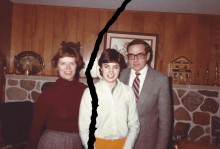
“IN THE BEGINNING was the Word and the Word was with God and the Word was God.” I had no idea what the words I recited in front of the church meant. My Mary Janes hurt my feet and my dress was so tight it left angry red welts in my armpits. Mom looked so proud; Dad, too, sitting in the front row, smiling. I didn’t want to disappoint them, especially here.
As far back as I can remember, my parents started churches in our suburban Milwaukee home. They were nondenominational, Independent, Calvinist, Fundamentalist Baptist. Initially, just a few families gathered, with Dad leading the service in our living room. Before long, our house overflowed, and the adults started raising money to construct a church. Once the building was complete, dissension began and my parents would leave, claiming the church was now too liberal. They disapproved of so many things: changes to the prayer book, Black people joining their all-white communities, homosexuality, women in ministry, the Equal Rights Amendment, anyone who questioned the literal translation of the Bible, adding rhythm to traditional hymns, accepting Catholics as fellow Christians. We were the “Chosen.” Predestined and proud of it.
My parents were also active members of The John Birch Society (JBS), the extreme right political organization, founded in 1958, which is known to be racist and antisemitic. They hosted monthly JBS chapter meetings in our living room. It was hard to know which belief system drove them more: the conservative politics of the JBS or the fundamentalist Christian fear of the rise of the Antichrist. Either way, to them the possibility of a communist invasion was a real threat.
They hired a handyman to build a hidey-hole in the back of the closet in our basement, where our whole family could hunker down if communists invaded the United States. Because we were Christians, educated, and part of the ruling class, Mom told us our family would be among the first to be imprisoned, then executed. Most of my nightmares as a child involved communists finding us in our hiding place.
I grew up listening to Mom and her friends, drinking coffee around our kitchen table while they animatedly discussed which group of people was ruining our country and if former President Dwight D. Eisenhower was really a communist agent.
I never quite understood what all the fuss was about. All I knew was that I adored listening to my Dad talk about politics and preach. I loved memorizing the verses he gave me about fleeing evil and avoiding temptation. I believed the words he spoke to be true. For me, he embodied the Heavenly Father he taught me about.
I didn’t feel the same about my mother. After every church service, whenever I’d overhear her describe someone as a person who “loved the Lord,” the hair on the back of my neck would stand straight up. If she caught me rolling my eyes as she quoted scriptures, I knew I had it coming. As soon as we got in the car, she’d slap my face.
My mother hitting me wasn’t unusual. Quite often after one of the regular beatings she gave me, she’d make me kneel in front of her, as she reverently prayed, eyes closed, “Please forgive Diana, Lord. She doesn’t know how to respect or obey me.” Never knowing when she’d strike, I was constantly on guard.
I believed in God as a child and deeply felt Jesus was my friend, responding to an altar call when I was 6. But Mom smugly told me Jesus could never love a naughty, backsliding little girl like me. Because of that, I was never sure my salvation stuck, so I made at least half a dozen more trips down the aisle. My teenage years and early 20s did little to reassure me of God’s love. I didn’t want to go to hell. It seemed like a scary place. But when I was 25, hell found me anyway.
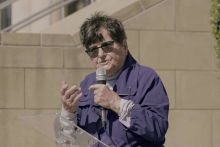
In the almost 23 years that Ivan Cantu has been on death row in Texas, a lot has changed: A trial witness admitted he lied on the stand. A true crime podcast revealed several forensic oversights in the details of Cantu’s case. And hundreds of thousands of people have petitioned for courts to reconsider the case. But one thing hasn’t changed: Cantu is still on death row, and his execution is now scheduled for Feb. 28. With few avenues of appeal left, a coalition of faith leaders, family members, and true crime podcast listeners say evidence that could prove Cantu’s innocence deserves to be heard by a court.

While a number of anti-death penalty advocates rightly highlight the exonerations, Elizabeth Bruenig prefers writing about the “confessed and admittedly guilty … since we all already agree the innocent shouldn’t be put to death.”
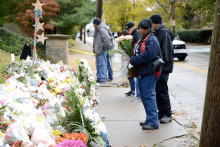
A federal jury on Wednesday voted to sentence Robert Bowers to death for killing 11 worshippers at Pittsburgh’s Tree of Life synagogue in 2018, the deadliest antisemitic attack in U.S. history, the New York Times reported.
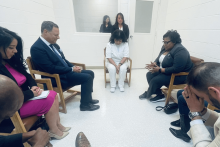
“We don’t think the death penalty is in line with Christian values,” said Cameron Vickrey, a staff member with Fellowship Southwest, a network of churches dedicated to social service. While she has always opposed the death penalty on compassionate grounds, Vickrey said Lucio’s case caught her attention because of new evidence demonstrating the likelihood that Lucio is innocent.
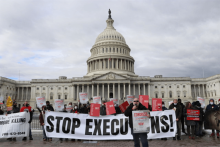
The Abolitionist Action Committee was marking the 45th anniversary of the first execution in the modern era: Gary Gilmore was executed by firing squad on Jan. 17, 1977; he had been convicted of murdering two men in Utah in 1976, and the Supreme Court ruled the death penalty legal that same year.

I am troubled about Oklahoma’s recent decision to reinstate the death penalty and to resume state executions. I know you are a Christian, governor. As a Christian minister myself, I believe that capital punishment should end.
But I am not writing to you today to debate policy; the occasion for my letter is much more urgent: The decision to kill Julius Jones or to spare his life rests in your hands.
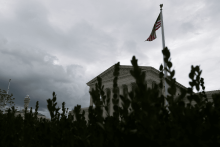
Supreme Court justices on Tuesday appeared divided over a bid by a man sentenced to death to have his pastor lay hands on him during his execution in Texas in a case testing how far states must go to accommodate religious requests by condemned inmates.
The justices heard more than 90 minutes of oral arguments in John Henry Ramirez’s appeal after Texas officials refused his request to let his Christian pastor touch him and audibly pray as he dies from the lethal injection and lower courts refused to issue a stay of execution.
The court, which has wrestled in recent years over the religious rights of death row inmates, has a 6-3 conservative majority. Some of the conservative justices raised questions about the sincerity of Ramirez’s religious request and how siding with him might affect future cases. The court’s liberal justices appeared to sympathize with Ramirez, who was not contesting his guilt in the appeal.
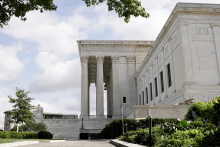
The Supreme Court’s new nine-month term, which begins on Monday, promises to be among the most momentous in generations. The justices are poised to decide major cases that could roll back abortion rights and broaden gun and religious rights.
Here is a look at some of cases the court will decide during the term, which runs through the end of next June.

I urge everyone to see The Phantom. It breaks new ground — uncovers new evidence — that cements the conclusion I have maintained since 2006: Carlos DeLuna was an innocent man who was executed for a crime he did not commit.

“THEY WERE AFRAID.” Those are the last words of the earliest manuscripts of Mark’s gospel (16:8)—the oldest of the four gospels. Mark ends his story about Jesus with Mary Magdalene, Mary the mother of James, and Salome at the empty tomb. Terror seizes them. They flee in shocked silence. The end. What kind of Easter is this?
Scribes and theologians thought the same, so a couple centuries later they added different endings to Mark—easier endings, with Jesus coming back to offer further teachings. In Mark’s original Easter account, however, there is no resolution to the story. Instead, we read about three women at a tomb, bewildered. Here, resurrection doesn’t resolve anything. Instead, the event unsettles. The absence of a corpse provokes questions and invites a hope in the promise of unimaginable possibility. “Jesus is going ahead of you to Galilee,” a strange messenger in the empty tomb tells them, “there you will see him.”
Easter is an ending without a conclusion, a story without finality. The end returns us back to the beginning—to Galilee, where Jesus was born, where he was baptized, where he gathered disciples, where he healed the sick, fed the hungry, and preached good news. Resurrection means that nothing, not even death, will prevent Jesus’ invitation for us—who are weak and fearful, bewildered by a world we can’t control—to follow messengers who guide into the mysteries of Christ in the here and now.
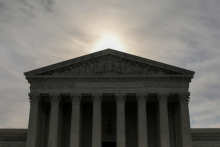
“The law guarantees Smith the right to practice his faith free from unnecessary interference, including at the moment the State puts him to death,” wrote Justice Elena Kagan.
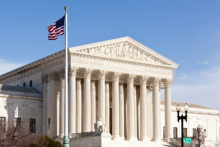
On Wednesday night, the U.S. Court of Appeals for the Eleventh Circuit reversed a district court’s decision and ruled that the state of Alabama must allow Willie B. Smith III’s pastor to be in the execution chamber during Smith’s execution.
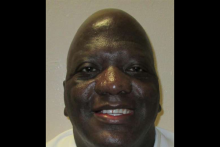
On Feb. 11, the state of Alabama intends to execute Willie B. Smith III without his pastor by his side — which Smith alleges is a violation of his religious freedom.

Lawmakers in Virginia voted on Friday to abolish the death penalty. The Democratic-led House of Delegates voted 57-41 Friday, after the Senate passed the measure earlier this week. Gov. Ralph Northam, a Democrat, said he would sign the repeal into law.
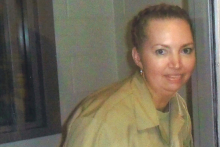
In the early morning of Jan. 13, following a day of attempted legal delays and despite documentation of severe mental illness stemming from childhood abuse, 52-year-old Lisa Montgomery became the first woman in decades to be executed by the federal government.
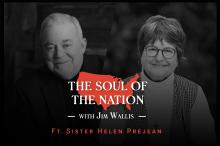
Sister Helen Prejean speaks with Rev. Wallis about her 30-year fight to abolish the death penalty.